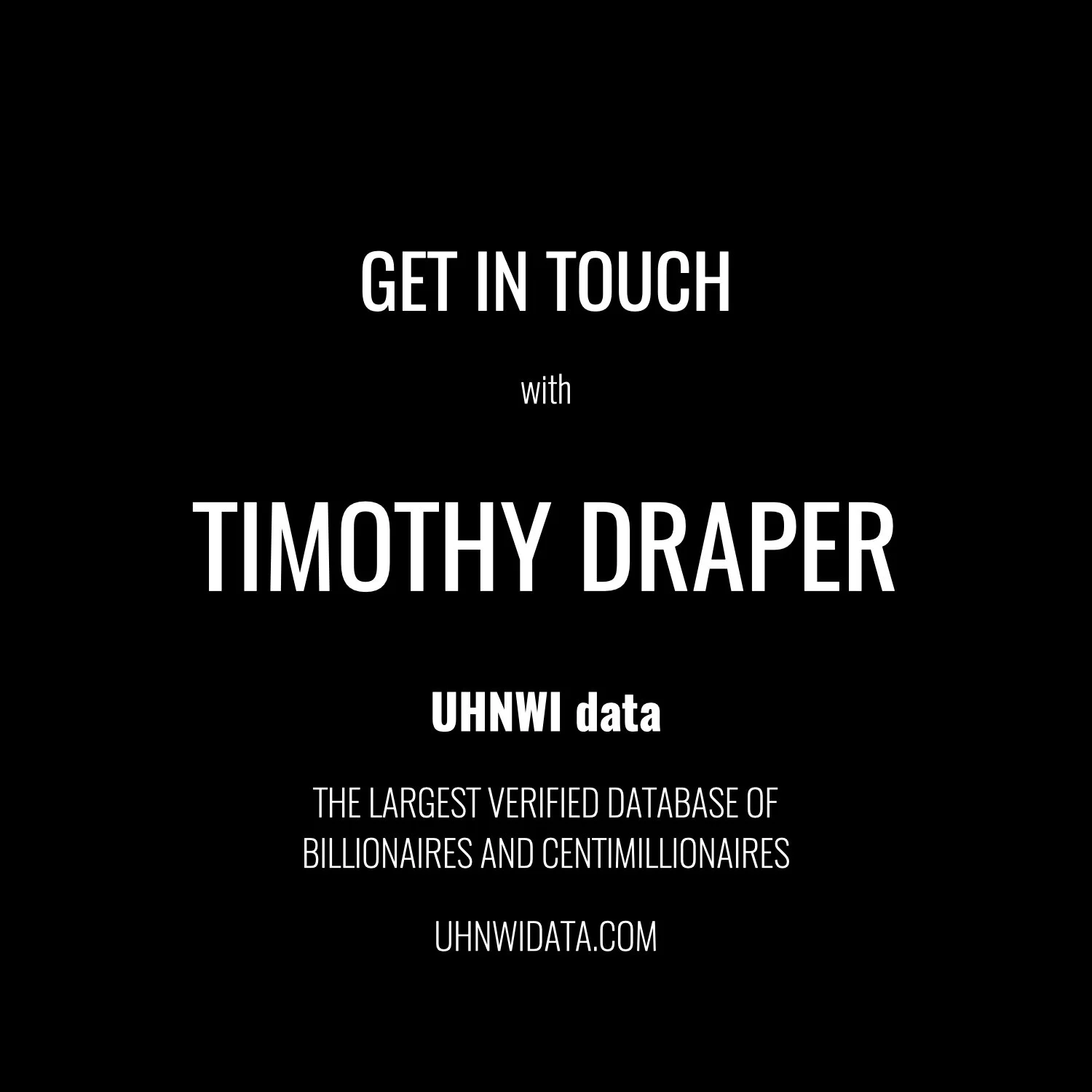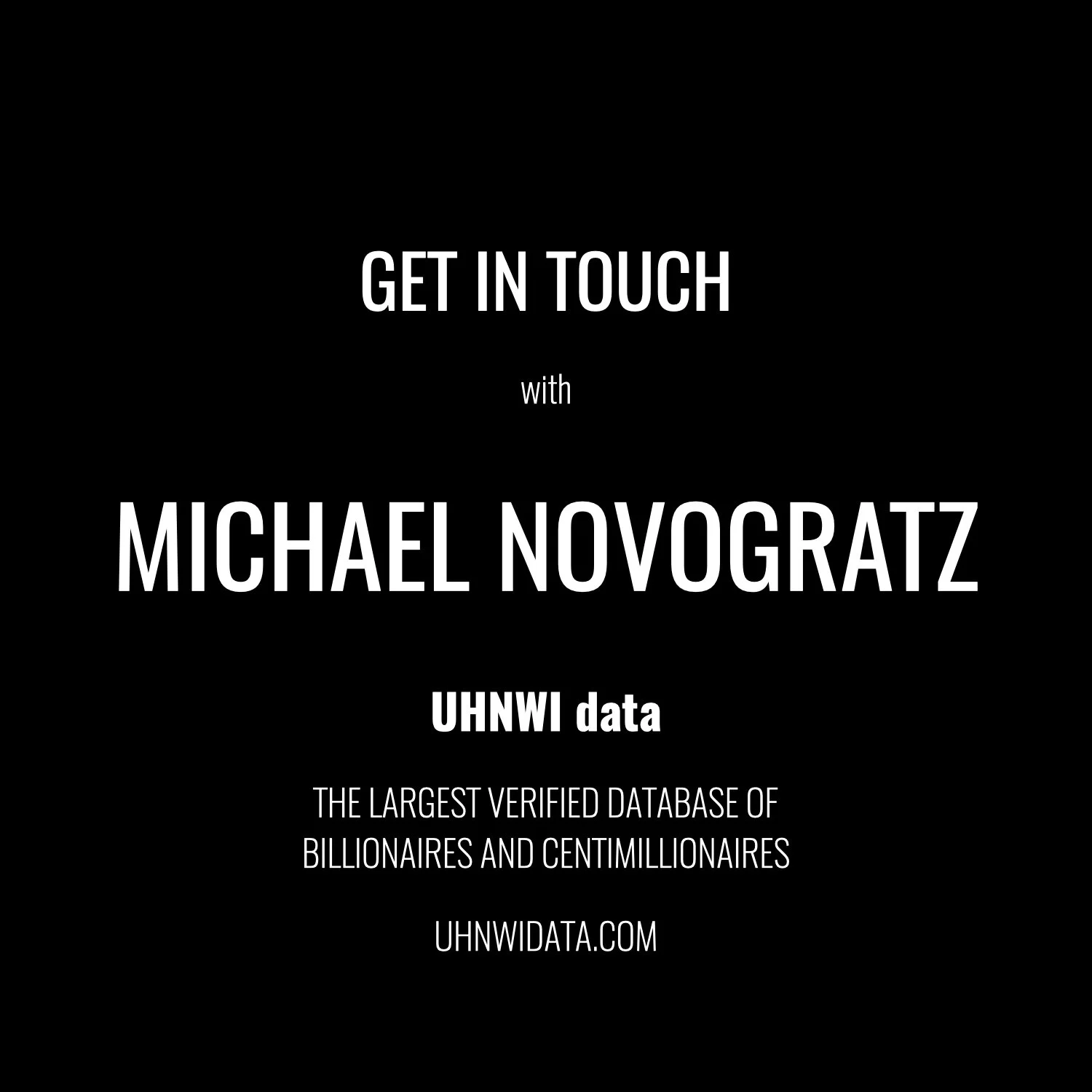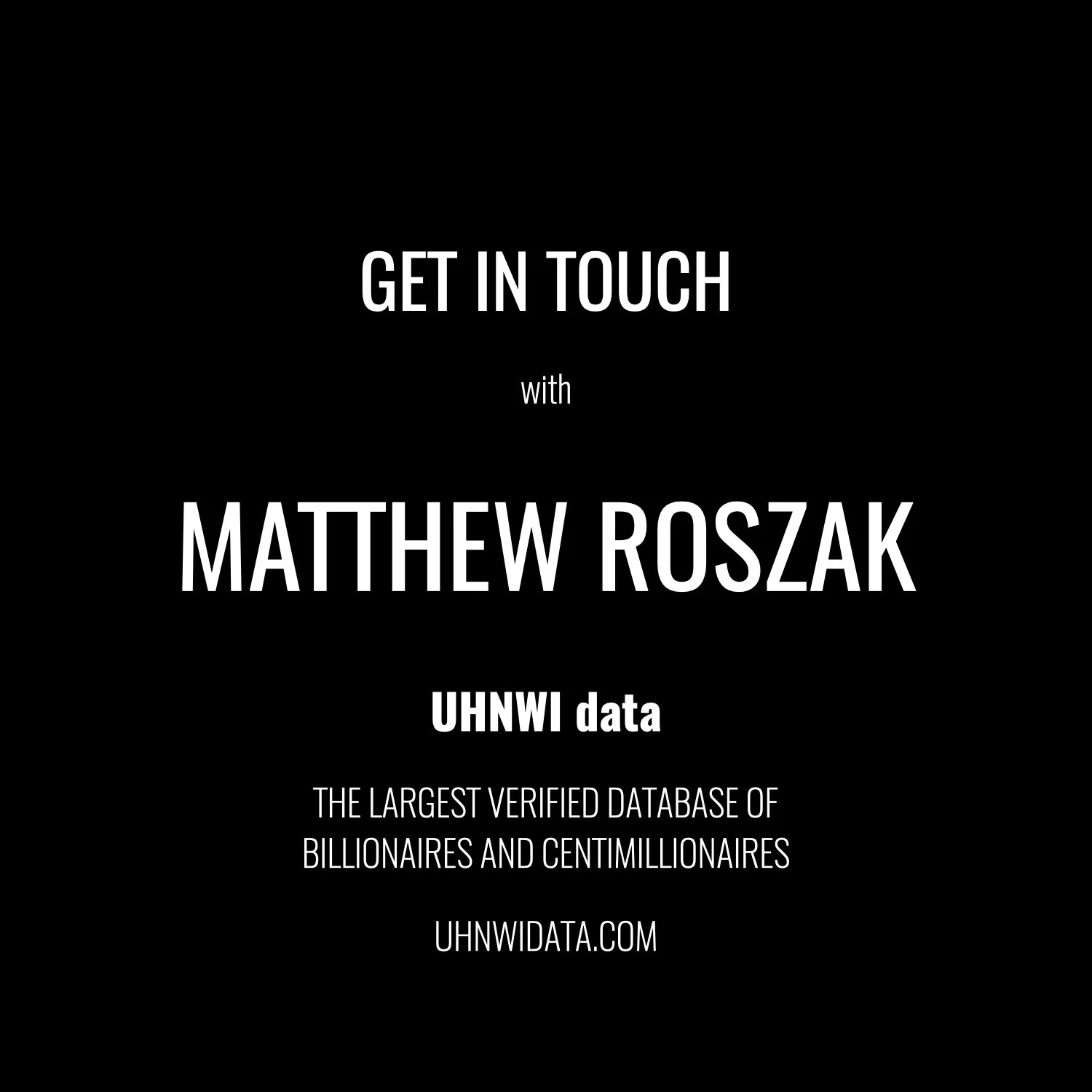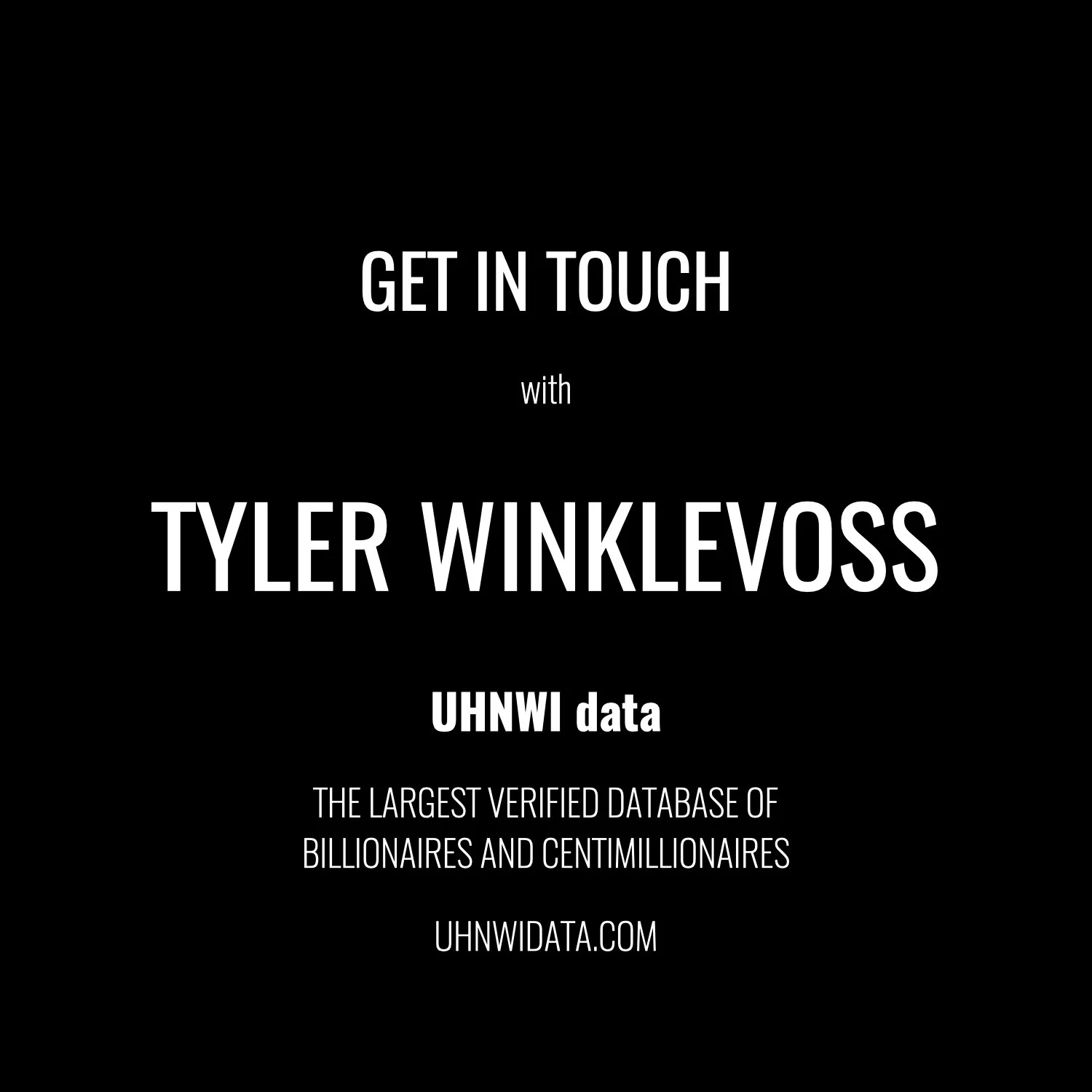Jed McCaleb (born c. 1975) is an American software engineer, entrepreneur, and philanthropist best known for pioneering peer-to-peer file-sharing with eDonkey2000, launching the first major Bitcoin exchange Mt. Gox, co-founding the payment protocol Ripple, and establishing the blockchain network Stellar to enable low-cost cross-border transactions, before founding the aerospace firm Vast to develop artificial gravity space stations.[1][2]
McCaleb's early career centered on decentralized technologies; after briefly attending the University of California, Berkeley, he moved to New York City and in 2000 founded MetaMachine to create eDonkey2000, a file-sharing network that attracted over four million users by leveraging peer-to-peer architecture for efficient content distribution.[2] In 2007, he acquired the domain Mtgox.com, transforming it in 2010 into Mt. Gox, the inaugural Bitcoin exchange that facilitated early cryptocurrency trading until he sold it in 2011, prior to its later security breach.[1][2]
Transitioning to blockchain payments, McCaleb developed the Ripple protocol in 2011 and co-founded Ripple (initially OpenCoin) as its CTO, aiming to rival traditional systems with faster, consensus-based settlements, though he departed in 2013 amid strategic differences with co-founders.[1][2] He then co-founded the Stellar Development Foundation in 2014, forking Ripple's codebase to prioritize financial inclusion for the unbanked via its open-source network and native asset XLM, where he serves as founder and chief architect.[3][2] McCaleb has supported AI safety efforts through donations and advisory roles at organizations like the Machine Intelligence Research Institute and OpenAI.[2]
In 2021, leveraging wealth from cryptocurrency holdings—including the sale of billions of XRP tokens by 2022—McCaleb founded Vast as its sole initial funder, shifting focus to space infrastructure with plans for rotating habitats to simulate gravity and potentially succeed aging orbital platforms like the International Space Station.[1][4][5]
Early Life and Education
Childhood and Early Interests
Jed McCaleb was born on June 8, 1975, in Fayetteville, Arkansas.[6] His early childhood unfolded in a rural setting, including time spent in a cabin in the woods without electricity or running water, reflecting a modest and self-reliant upbringing.[7] Public details on his family background remain sparse, as McCaleb has prioritized privacy regarding personal matters.[8]
McCaleb's family later relocated to Little Rock, Arkansas.[6] From a young age, he exhibited a strong aptitude for technology, beginning to experiment with programming as early as the third or fourth grade.[8] This self-initiated engagement with computers highlighted his innate curiosity and resourcefulness, laying the groundwork for a pattern of independent technical exploration unguided by formal instruction.[9]
Self-Taught Programming and Initial Ventures
McCaleb began learning programming as a child in elementary school, during grades 3 and 4, developing skills independently without formal instruction.[10] This early self-directed engagement fostered a reliance on coding for self-sufficiency and problem-solving, as he later described programming as a foundational tool acquired from youth.[11] By the late 1990s, he applied these abilities to software development in informal settings, including time spent in San Francisco writing code.[10]
In 1998, McCaleb initiated work on what would become eDonkey2000, a peer-to-peer (P2P) file-sharing application designed to enable decentralized distribution of files, contrasting with more centralized predecessors like Napster.[10] He released the initial version in August 2000 through MetaMachine Inc., which he founded, incorporating features such as multi-source downloads to improve reliability and efficiency over single-server models.[12] The network quickly gained traction, becoming the world's largest P2P file-sharing system by user volume within months, demonstrating viability of distributed architectures for large-scale data exchange.[13]
eDonkey2000's design prioritized user-driven sharing without central intermediaries, inherently challenging traditional intellectual property enforcement by facilitating widespread access to copyrighted materials.[13] This approach led to rapid adoption but also legal scrutiny from content industries, underscoring the tension between decentralized technology and established control mechanisms. McCaleb's subsequent enhancements, including the Overnet protocol for further decentralization, built on these foundations but remained focused on non-monetary P2P utilities.[11]
Formal Education and Dropout
McCaleb enrolled at the University of California, Berkeley after graduating high school, pursuing studies in the mid-1990s amid his growing interest in computing.[6] [14] He departed the institution during his freshman year without earning a degree, opting instead for self-directed programming endeavors that aligned more closely with solving practical technical challenges.[6] [15]
This decision reflected a prioritization of hands-on innovation over structured academia, as McCaleb later indicated that university coursework felt disconnected from real-world application, prompting his shift to full-time software creation in New York City.[14] [16] His subsequent development of early file-sharing software validated the efficacy of this path, yielding tangible outcomes absent from formal credentialing.[15]
Professional Career
Pre-Cryptocurrency Projects
In 2000, Jed McCaleb founded MetaMachine and launched eDonkey2000, a peer-to-peer file-sharing application designed to facilitate decentralized distribution of files via the eD2k protocol and Multisource File Transfer Protocol.[6][17] The software initially relied on centralized servers for indexing but evolved to incorporate distributed hashing for greater resilience against shutdowns, reflecting McCaleb's emphasis on robust, user-driven networks.[18]
eDonkey2000 achieved significant adoption, ranking among the most prominent P2P networks of the early 2000s, with empirical analyses revealing average users sharing approximately 58 files totaling around 217 MB each, though top contributors handled up to 1.2 TB.[18][19] This scale enabled efficient, low-cost access to diverse content, including software, videos, and music, bypassing traditional intermediaries and demonstrating the causal efficacy of P2P architectures in scaling data exchange without proportional infrastructure costs.[18] However, the network's openness facilitated extensive unauthorized sharing of copyrighted material, prompting accusations from industry groups that it undermined revenue models reliant on controlled distribution.[20]
Facing mounting legal pressure, MetaMachine, along with McCaleb and CEO Sam Yagan, settled a lawsuit from the Recording Industry Association of America in September 2006 for $30 million, agreeing to immediately cease distribution of eDonkey2000, its Overnet successor, and related software while disabling the network's functionality.[20][21] The settlement imposed personal liability on executives and required cooperation in blocking infringing uses, underscoring regulatory mechanisms favoring intellectual property enforcement over unchecked technological disruption.[21] Despite the shutdown, the episode highlighted eDonkey2000's role in challenging centralized control, as residual protocols persisted in open-source implementations.[17]
Mt. Gox Founding and Bitcoin Exchange Operations
Jed McCaleb launched Mt. Gox in July 2010 by repurposing the mtgox.com domain, which he had acquired years earlier for trading digital cards from the game Magic: The Gathering Online.[22][23] The platform pivoted to facilitate Bitcoin trades, initially operating as a simple web-based exchange where users could buy and sell the cryptocurrency using fiat currencies like USD.[24] At the time, Bitcoin lacked established trading infrastructure, and Mt. Gox filled this void by enabling peer-to-peer transactions through a basic order book system, quickly attracting early adopters and providing the market's primary source of liquidity.[25]
During its initial operations under McCaleb, Mt. Gox processed modest but growing volumes, handling thousands of Bitcoin trades daily amid the cryptocurrency's price hovering below $1.[26] The exchange's simplicity allowed rapid user onboarding via email verification, though it featured rudimentary security measures typical of early Bitcoin projects, such as unencrypted private keys stored on a single server, reflecting the experimental nature of the ecosystem rather than robust enterprise safeguards.[27] This setup supported Bitcoin's expansion by offering reliable price discovery and settlement, with daily trading volumes reaching into the low thousands of BTC by late 2010, far exceeding competitors like Bitcoin Market.[28]
In March 2011, McCaleb sold Mt. Gox to French developer Mark Karpelès for approximately six months' worth of hosting fees, retaining a minority stake while shifting focus to other projects.[22][29] Under McCaleb's brief stewardship, the exchange had established itself as a foundational hub, processing a significant share of global Bitcoin volume—estimated at over 50% in its early months—and demonstrating the viability of centralized trading platforms for digital assets, despite inherent risks from limited regulatory oversight and nascent technology.[30]
Ripple Co-Founding and Protocol Development
In 2011, Jed McCaleb, along with engineers David Schwartz and Arthur Britto, initiated the development of the XRP Ledger (XRPL), a distributed ledger technology inspired by Bitcoin but optimized for faster and more efficient payment processing.[31] The project aimed to address limitations in Bitcoin's proof-of-work mechanism by introducing a consensus protocol that enabled transactions to settle in seconds without energy-intensive mining, positioning it as a solution for cross-border remittances and value transfer.[31] McCaleb contributed to the core protocol design, including the creation of XRP as a native token to serve as a bridge asset for liquidity in international payments, reducing reliance on pre-funded accounts in traditional correspondent banking.[14]
In September 2012, McCaleb co-founded OpenCoin (later rebranded as Ripple Labs) with Chris Larsen to commercialize the XRPL and promote its adoption for global remittances.[12] The company focused on building infrastructure for financial institutions, with the XRP Ledger launching publicly in 2012 to facilitate low-cost, near-instant transfers, contrasting with slower systems like SWIFT.[31] Early efforts included integrating the protocol with existing payment networks, though adoption remained nascent; by 2013, OpenCoin secured an angel investment round and began piloting use cases for efficient remittance corridors, such as reducing settlement times from days to seconds.[12]
McCaleb served as chief technology officer, overseeing protocol refinements that emphasized scalability and validator-based consensus over decentralized mining.[32] However, as Ripple Labs shifted toward partnerships with banks and a more institutionally oriented strategy, concerns arose about potential centralization in validator selection and token distribution, diverging from McCaleb's vision for broader, permissionless utility.[33] He departed the company in 2014 amid these directional disagreements, transitioning away from Ripple's evolving enterprise focus.[1]
Stellar Fork and Decentralization Push
In 2014, Jed McCaleb co-founded the Stellar Development Foundation (SDF), a nonprofit organization, with Joyce Kim, forking the Ripple protocol's codebase to establish the Stellar network as an open-source platform emphasizing decentralization and equitable financial access.[34][35] This fork addressed perceived centralization risks in Ripple's for-profit structure, prioritizing broad network participation and transparency through nonprofit governance rather than venture-backed control.[36] McCaleb's vision centered on enabling low-friction value transfer for unbanked populations, contrasting Ripple's focus on institutional partnerships by distributing control via open protocol development and community validation.[37]
Stellar's core protocol introduced the lumen (XLM) as its native asset, facilitating near-instantaneous cross-border transactions with fees as low as 0.00001 XLM per operation to deter spam while supporting micropayments and remittances.[38] Unlike Ripple's XRP, which primarily bridges fiat for banks, XLM enables direct peer-to-peer exchanges across multiple currencies, including tokenized assets from anchors in emerging markets, with the Stellar Consensus Protocol ensuring energy-efficient validation without proof-of-work mining.[39] This design targeted underserved regions, such as Africa and Southeast Asia, where partnerships have processed billions in transaction volume for remittances, demonstrating lower effective costs—often under $0.01 per transfer—compared to traditional systems averaging 6-7% fees per World Bank data integrated into Stellar's use cases.[40]
Under McCaleb's leadership as CTO and key architect through 2022, Stellar advanced decentralization by mandating minimum XLM holdings for accounts to promote organic distribution and resisting concentrated holdings, fostering empirical adoption in real-world remittances over speculative institutional pilots.[41] Transaction throughput reached up to 1,000 per second in tests, with live networks handling high-volume corridors like mobile money integrations, validating the model's viability for inclusion against Ripple's slower enterprise onboarding.[42] This push culminated in protocol upgrades prioritizing interoperability and anti-centralization safeguards, such as federated Byzantine agreement, to sustain trustless operations amid growing network nodes exceeding 100 validators by 2020.[43]
Post-Stellar Activities and Asset Liquidation
Following the completion of his operational role at the Stellar Development Foundation, McCaleb shifted focus to broader technological frontiers, founding Vast in 2021 to develop artificial gravity space stations capable of supporting extended human habitation beyond low Earth orbit.[5] The company publicly launched in September 2022, with McCaleb as founder, board chair, and technical fellow, leveraging proceeds from prior cryptocurrency ventures to fund ambitious projects including the Haven-1 prototype station targeted for orbital deployment.[44] This marked a departure from blockchain-centric operations toward space infrastructure, with Vast securing NASA contracts and aiming for commercial viability in artificial gravity habitats.[45]
McCaleb's asset liquidation centered on divesting approximately 9 billion XRP tokens originally allocated to him upon departing Ripple in 2014, under a structured escrow agreement designed to minimize market disruption.[46] Sales commenced that year at a weekly cap of $10,000 equivalent, gradually escalating as XRP's value rose, culminating in the final disposition of remaining holdings—around 114 million XRP—by July 2022.[47] This process spanned eight years and generated approximately $3.1 billion in proceeds, peaking his net worth in the cryptocurrency sector before reallocating capital to space endeavors.[47]
In advisory capacities, McCaleb engaged in strategic discussions on technological innovation, including a keynote at the Stellar-affiliated Meridian 2024 conference in October, where he addressed foundational perspectives on advancing decentralized systems amid evolving industry landscapes.[48] These engagements underscored a transition to high-level oversight rather than hands-on development, aligning with Vast's progression toward prototyping and potential $1 billion-scale investments in orbital infrastructure.[45]
Philanthropic Efforts
Donations to AI Alignment Organizations
Jed McCaleb has made significant donations to the Machine Intelligence Research Institute (MIRI), an organization dedicated to AI alignment research aimed at mitigating existential risks from advanced artificial intelligence systems. In late 2013, McCaleb donated cryptocurrency valued at approximately $500,000 to MIRI, marking one of its largest single contributions at the time and supporting efforts to develop mathematical foundations for provably safe AI.[6][14] He serves as an advisor to MIRI, which prioritizes rigorous, first-principles approaches to alignment over less empirically grounded optimism about AI controllability.[49] Additional contributions include $773,137 listed among recent major donors as of November 2021, further bolstering MIRI's work on technical alignment problems such as corrigibility and embedded agency.[50]
McCaleb also contributed to OpenAI, an entity initially focused on developing safe artificial general intelligence through open research. In February 2018, he was announced as a donor following Elon Musk's departure from the board, aligning with OpenAI's early emphasis on ensuring superintelligence benefits humanity via safety measures like scalable oversight.[51][6] These donations reflect targeted support for organizations addressing AI risks via empirical evaluation of development trajectories, rather than unsubstantiated assumptions of inherent benevolence in advanced systems.[52] Through such giving, McCaleb has helped fund initiatives countering potential misalignments in rapidly scaling AI capabilities, drawing on evidence from decision theory and formal verification to prioritize robust safety protocols.[53]
Launch of Navigation Fund for Open Science
In November 2023, Jed McCaleb established the Navigation Fund as a philanthropic vehicle endowed with approximately $1 billion, primarily directed toward AI-enabled open science and related high-impact areas.[54][55] The initiative, chaired by McCaleb's partner Dr. Seemay Chou—a molecular biologist and Pew Scholar—prioritizes structural innovation in grantmaking to overcome the limitations of conventional funding mechanisms, which often favor safe, incremental projects over transformative risks.[55][56]
The fund's approach centers on deploying large, targeted grants—ranging from $20,000–$100,000 for convening meetings to multimillion-dollar awards for validation and scaling—to enable rapid execution of bold scientific bets, bypassing protracted bureaucratic processes like multi-stage peer reviews.[57] This model seeks to maximize causal impact by concentrating resources on initiatives with potential for outsized returns in accelerating discovery, such as AI tools that enhance research transparency, reproducibility, and efficiency.[57][58] Part of the endowment supports infrastructure investments, including Voltage Park, to provide compute resources for compute-intensive open science projects.[54]
Among its initial actions, the Navigation Fund acquired roughly $500 million in Nvidia H100 GPUs in late October 2023, creating leasable AI compute capacity to alleviate chip shortages and empower researchers pursuing open-access advancements in fields like biology and physics.[59][60] Subsequent grant opportunities have targeted AI-driven open science infrastructure, including platforms for direct publication of datasets, models, and protocols without proprietary restrictions, aiming to dismantle barriers to collaborative progress.[61][57] By emphasizing directed philanthropy over diffused allocations, the fund positions itself as a counterweight to institutional inertia, fostering environments where empirical breakthroughs can scale efficiently.[62]
Broader Impact on Effective Altruism Initiatives
McCaleb's philanthropic commitments have reinforced effective altruism's (EA) emphasis on long-termism by channeling substantial cryptocurrency-derived wealth toward interventions aimed at mitigating existential risks, particularly in artificial intelligence safety. His funding decisions, informed by firsthand experience in scalable technological systems, prioritize pragmatic, evidence-oriented strategies over abstract ethical theorizing, aligning with EA's core tenet of maximizing expected value through rigorous cost-effectiveness analysis. This tech-centric realism distinguishes his approach from more philosophically driven EA strands, focusing instead on causal mechanisms derivable from engineering and market dynamics.[63][55]
Estimates indicate McCaleb has facilitated over $1.3 billion in outflows to EA-aligned causes via the Navigation Fund and direct grants, including significant support for organizations like the Machine Intelligence Research Institute ($773,137 as of 2021) and participation as a recommender in the Survival and Flourishing Fund's grant processes. This influx has amplified EA's capacity in high-priority areas, demonstrating how crypto market successes can generate outsized funding for evidence-based initiatives. His involvement has also spotlighted intersections between blockchain innovation and altruism, encouraging parallel donors from the tech sector to apply similar empirical scrutiny to charitable allocation.[55][50][64]
However, McCaleb's prioritization of tail risks—such as AI misalignment—mirrors broader critiques of EA's long-termist assumptions, where resources may disproportionately target speculative future threats at the expense of empirically tractable, near-term interventions like global health or poverty alleviation. Detractors argue that such foci rely on probabilistic models with high uncertainty, potentially undervaluing causal evidence from randomized controlled trials demonstrating immediate impact. While McCaleb's grants have undergone EA-style evaluation, the movement's systemic tilt toward low-probability/high-stakes scenarios invites scrutiny over whether donor preferences, shaped by tech optimism, adequately balance against diverse empirical needs.[65][66]
Controversies and Criticisms
Responsibility in Mt. Gox Hack and Collapse
Jed McCaleb founded Mt. Gox in July 2010, initially repurposing a domain for Bitcoin trading after its origins as a Magic: The Gathering card exchange site.[67] He sold the platform to Mark Karpelès in March 2011, prior to the exchange's dominance in Bitcoin trading and the major security breaches that precipitated its 2014 collapse.[68] Under McCaleb's tenure, Mt. Gox experienced early vulnerabilities, including a January 2011 hack that compromised user accounts and led to undisclosed losses, which McCaleb did not fully reveal to Karpelès during the handover.[68] These foundational issues, such as inadequate protection of private keys and hot wallet practices, laid groundwork for subsequent exploits, though the platform operated as a pioneering service amid Bitcoin's nascent ecosystem with limited resources for advanced cybersecurity.[69]
Mt. Gox filed for bankruptcy on February 28, 2014, after hackers stole approximately 850,000 BTC—comprising around 744,000 from customer holdings and 100,000 from company reserves—valued at that time in the hundreds of millions of dollars and now exceeding tens of billions.[70] [71] The breach involved transaction malleability exploits and unauthorized access dating back years, but the bulk of losses occurred post-sale under Karpelès' management, with no evidence of McCaleb's direct involvement after March 2011.[67] Critics argue McCaleb bears partial accountability for neglecting to address known risks, such as poor database security and failure to implement cold storage, which enabled early thefts like 45,000 BTC from a single user account during his oversight.[69] Defenders, including McCaleb himself in later reflections, contend that as an early innovator bootstrapping the first major Bitcoin exchange, he operated under severe constraints without established best practices, and the sale transferred full operational responsibility to Karpelès, who expanded the platform without sufficiently mitigating inherited flaws.[11]
In May 2019, former Mt. Gox traders Joseph Jones and Peter Steinmetz filed a class-action lawsuit in California federal court against McCaleb, alleging fraudulent and negligent misrepresentation for concealing security vulnerabilities known as early as 2010, including SQL injection risks and inadequate encryption, which contributed to user losses.[72] [73] The suit claims McCaleb prioritized rapid growth over safeguards, leaving "major security holes" that hackers exploited repeatedly, though it does not assert he orchestrated the 2014 theft.[74] McCaleb has maintained that while early hacks occurred, the platform's code was open-source and vulnerabilities were addressed as discovered within the era's technological limits, with post-sale mismanagement by successors exacerbating the collapse; the lawsuit's outcome remains unresolved in public records, highlighting ongoing debates over founder liability in high-risk fintech ventures.[11] Empirical data underscores no proven causal link tying McCaleb's pre-2011 actions directly to the 2014 quantum of losses, as audits post-collapse attributed much of the theft to ongoing hot wallet drains under Karpelès.[67]
Disputes with Ripple Over Centralization and XRP Holdings
Following his departure from Ripple in late 2013, Jed McCaleb cited fundamental disagreements over the protocol's direction, particularly Ripple's increasing centralization through company-controlled validators and governance, which he viewed as incompatible with the open, decentralized ethos of early cryptocurrency projects like Bitcoin.[75] He forked the Ripple protocol in 2014 to create Stellar, aiming to foster a more permissionless network focused on true openness rather than enterprise partnerships that risked consolidating control.[76] This ideological split manifested in practical disputes, including Ripple's demonstration of ledger control by freezing McCaleb's account in April 2015, preventing the withdrawal of approximately $1 million in XRP proceeds from a sale via Bitstamp, ostensibly to protect XRP's value from rapid dumping.[77] McCaleb and supporters argued this intervention exemplified centralization risks, as Ripple's influence over a majority of validators enabled such actions, undermining claims of ledger autonomy.[78]
Legal tensions escalated from 2014 onward over McCaleb's substantial XRP holdings—initially around 9 billion tokens from protocol founding and vesting agreements—amid accusations of breaching sale restrictions designed to prevent market flooding.[47] Ripple initiated lawsuits claiming McCaleb exceeded negotiated limits on transfers and sales, including a 2014 separation agreement capping weekly dispositions at low volumes like $10,000 equivalent, which he allegedly violated through larger offloads.[79] By early 2016, disputes intertwined with third-party claims, such as Bitstamp's action over disputed funds from nearly 100 million XRP sales.[79]
The parties reached a settlement in February 2016, resolving the $1 million lawsuit without admission of wrongdoing; McCaleb relinquished his remaining equity in Ripple Labs and consented to structured controls on liquidating his XRP, including monthly allocations transferred by Ripple for sale at predefined rates to mitigate volatility.[80] This mechanism, spanning roughly five years, culminated in McCaleb depleting his holdings by July 2022, with final transfers exceeding 400 million XRP in prior months under the accord.[81][47]
Ripple executives and community members criticized McCaleb's sustained sales as exerting persistent downward price pressure, exacerbating perceptions of founder opportunism amid XRP's pre-mined supply dynamics.[82] McCaleb rebutted in 2025 statements that his actions adhered strictly to the settlement terms, driven by personal financial needs rather than vendetta, and rejected claims of intentional ecosystem sabotage.[83] These frictions underscored broader trade-offs: McCaleb's advocacy for unfettered decentralization clashed with Ripple's model of controlled token release to support institutional adoption, without McCaleb's direct entanglement in subsequent regulatory scrutiny over XRP's security-like attributes.[84]
Stellar's Market Performance and Fork Rationale Debates
Stellar Lumens (XLM), the native token of the Stellar network forked from Ripple's protocol in July 2014, has exhibited significantly lower market capitalization compared to Ripple's XRP since its inception. As of April 2025, XLM's market cap stood at approximately $6.73 billion, while XRP maintained a substantially larger valuation exceeding $30 billion in contemporaneous assessments, reflecting Ripple's sustained dominance in investor interest and liquidity.[85][86] This disparity persisted historically, with XRP achieving over tenfold higher market cap peaks during bull markets, such as XRP's surge to rankings in the top cryptocurrencies by capitalization, whereas XLM rarely exceeded top-20 positions.[87] Critics attribute XLM's underperformance to Stellar's nonprofit governance via the Stellar Development Foundation (SDF), which prioritizes open-source development over profit-oriented partnerships, contrasting with Ripple's for-profit entity that pursued institutional alliances, including with banks for cross-border settlements.[88][89]
Debates surrounding the fork's rationale center on trade-offs between decentralization and scalability. Jed McCaleb initiated the fork to enhance decentralization, criticizing Ripple's validator centralization and corporate control, aiming for a protocol serving individuals and underserved markets rather than financial institutions.[36] Proponents of Stellar argue this nonprofit purity fosters genuine peer-to-peer utility, evidenced by its built-in decentralized exchange and order book enabling asset issuance without intermediaries.[88] However, detractors contend the fork's emphasis on consensus protocol changes, such as Stellar Consensus Protocol over Ripple's earlier mechanisms, failed to deliver competitive advantages in adoption, as Ripple's targeted scalability secured broader enterprise integration despite perceived centralization risks.[90] Empirical transaction data shows mixed results: both networks process 1-2 million daily transactions with sub-cent fees, but Ripple's ledger claims theoretical capacity up to 1,500 transactions per second versus Stellar's observed average of 91, underscoring critiques of Stellar's slower real-world throughput scaling.[89][91]
Stellar has garnered achievements in niche areas like micropayments, where its near-zero fees (around 0.00001 XLM per operation) facilitate small-value transfers impractical on higher-cost networks, supporting remittances in emerging markets and tokenized real-world assets with over $23 billion in processed payment volume by mid-2025.[92][93] Adoption critiques highlight internal governance challenges, including SDF's token distribution decisions and validator node concentration, which some analysts argue diluted momentum compared to Ripple's aggressive regulatory engagements and partnerships.[94] Despite these, Stellar's focus on organic growth via anchors for fiat on-ramps has enabled integrations for cross-border micropayments, though overall network effects lag Ripple's institutional traction, prompting debates on whether ideological decentralization justified the fork's divergence from Ripple's profit-driven path.[95][96]
Personal Life and Philosophical Views
Family, Residence, and Net Worth Trajectory
McCaleb maintains a private family life, with limited public details available about his personal relationships. He started a family with MiSoon Burzlaff around 2008, welcoming a daughter followed by a son shortly thereafter.[97][98] Some reports indicate the presence of three children, though the family has since separated, and McCaleb does not publicly discuss these matters.[99]
McCaleb resides in Berkeley, California, where he has maintained ties since attending the University of California, Berkeley.[1]
His net worth trajectory began with early ventures like the eDonkey file-sharing network, which he founded in 2000 and which faced a $30 million settlement with major record labels in 2006, marking a pivot away from peer-to-peer software amid legal pressures.[20] Subsequent cryptocurrency projects drove substantial growth: as a Ripple co-founder in 2012, he received an allocation of 9 billion XRP tokens, which he sold progressively from 2014 onward, realizing approximately $3.1 billion to $3.2 billion in proceeds by depleting his holdings in 2022.[1][100] This contributed to a peak net worth estimated at around $3 billion during the height of XRP's value.[46] Following these liquidations and diversification into ventures like aerospace startup Vast, his net worth has declined from its apex, with recent estimates placing it lower amid market fluctuations and reinvestments, though he remains a billionaire primarily from cryptocurrency origins.[1]
Perspectives on Decentralization, Innovation, and Risk-Taking
McCaleb advocates for peer-to-peer networks and blockchain protocols as mechanisms to disintermediate centralized authorities, enabling individuals to conduct transactions without reliance on trusted third parties. He posits that true decentralization is essential for cryptocurrencies to attain scalability and resilience, warning that centralized control undermines the core promise of distributed systems by reintroducing vulnerabilities akin to traditional finance.[75][101] This philosophy underscores his belief in open protocols that foster economic inclusion by providing borderless, low-cost access to value transfer, countering the opacity and fees imposed by intermediaries.[102]
The 2009 introduction of Bitcoin represented a breakthrough in McCaleb's estimation, resolving the Byzantine generals' problem of distributed consensus—a challenge he had previously considered intractable without central coordination.[103] He views Bitcoin's proof-of-work mechanism as a foundational innovation that demonstrated the viability of trustless digital scarcity, independent of fiat inflation driven by central banks, though he notes its limitations for institutional adoption due to volatility and regulatory hurdles.[104][105]
McCaleb identifies artificial intelligence and space exploration as domains warranting high-risk investment for outsized returns, framing AI advancement as a double-edged pursuit where unchecked development poses existential threats requiring robust safety measures to align with human values.[106] Similarly, he pursues space infrastructure, such as artificial gravity stations, as a hedge against terrestrial constraints and a catalyst for multi-planetary expansion, emphasizing private innovation over government-led stasis to accelerate human capability.[107][4]
His critiques of central banks highlight their proneness to inflationary policies and political interference, which erode purchasing power and distort markets, in contrast to algorithmic monetary issuance in decentralized ledgers that maintains predictability without discretionary authority.[105] McCaleb extends this to tech monopolies, arguing that concentrated power stifles competition and innovation, as seen in blockchain designs prioritizing open participation to prevent single-entity dominance and ensure network robustness through voluntary coordination.[108] Overall, his worldview prioritizes audacious experimentation in unproven technologies, where probabilistic high-reward outcomes from disruption outweigh the safety of incrementalism in regulated paradigms.













